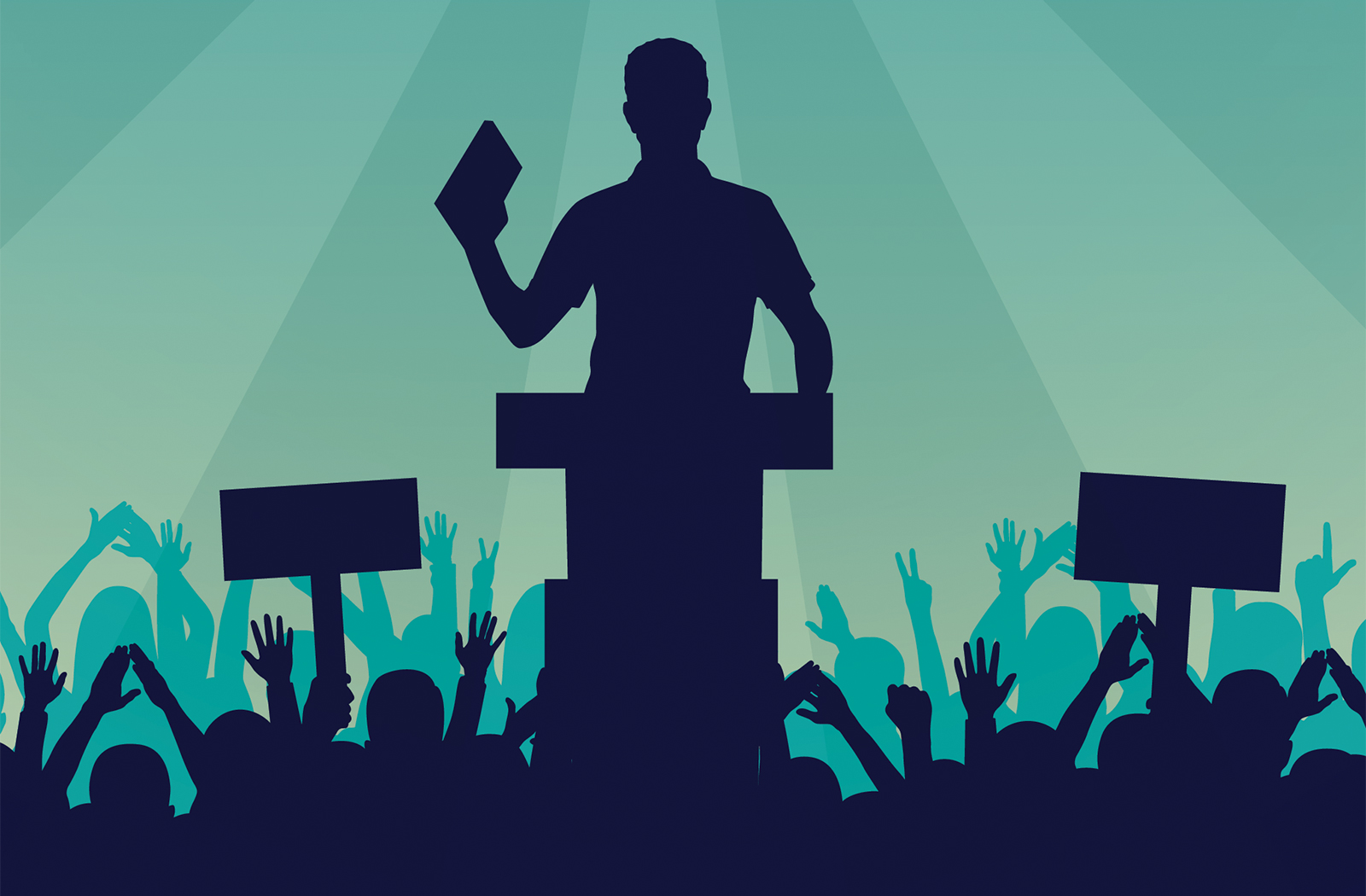The Impact Of Technology In Politics
In today’s fast-paced technological world, it is impossible to ignore the impact that technology has had on politics. From digital technologies that have changed the way we engage with one another to public opinion and access to technology, technology has allowed us to interact with politics in a way that was never before possible. This essay will explore how digital technologies have impacted politics, what challenges they present for democratization, and how public opinion and access to technology can shape political decisions. Finally, it will assess the effects of technology on inequality in political participation and voice. With the rise of new technologies, citizens everywhere are being challenged to think creatively about how they engage with their government and make their voices heard – a challenge that promises great potential for democracy.
Overview of Impact on Politics
The impact of technology on politics is undeniable. From communication technology that has revolutionized the way citizens interact with each other to new digital economies, technology has changed the political landscape in profound ways. Digital technologies have enabled citizens to access and share information more quickly, engage in political discourse more easily, and even participate in online voting. Technology has also allowed for a much wider range of civic activists to join the public sphere, thus increasing diversity and creating a platform for political change. Furthermore, advances in mobile phones have increased access to both information and media, allowing for more informed opinions on political issues. Technology has had an immense impact on politics worldwide – from liberal democracies like North America and Europe to Latin American countries still developing their civic infrastructure.
In conclusion, technology has revolutionized the way politics works today and its impact on civic engagement and political discourse will continue to be felt in the years to come. As digital technologies become more widespread and accessible, they are sure to shape our future political landscape in exciting ways. Stay tuned for our next article as we explore how digital technologies are transforming the face of politics!

Digital Technologies
Digital technologies are transforming the face of politics in exciting ways. From online voting to instant access to information, digital technologies have opened up new possibilities for political participation and discourse. This has allowed citizens to more easily exercise their right to voice their opinions, engage in civic activism, and shape the political landscape in profound ways. Furthermore, access to technology has enabled even those in marginalized communities or with low economic resources to participate in politics and express their opinions. Digital technologies have also made it easier for governments to interact with their citizens and understand public opinion, which is essential for developing effective policies. As digital technologies become more widespread and accessible, they will continue to revolutionize our politics and open up new opportunities for democratic engagement around the world.
As we continue to explore the powerful potential of digital technologies in politics, it is clear that they are revolutionizing the way we engage with and participate in our democracies. From improved access to information to citizen-led advocacy, digital technologies provide an unprecedented opportunity for citizens everywhere to be heard. Now, let’s take a closer look at how digital technologies are affecting politics around the world.
How Digital Technologies Affect Politics
Digital technologies are revolutionizing the way we engage in politics. From improved access to information and the ability to share opinions on social media, digital technologies have enabled citizens everywhere to become more involved in their political systems. This has resulted in increased levels of political participation, with citizens engaging actively in debates, discussing issues, and forming public opinion. Additionally, governments are now able to better understand public opinion, which is essential for developing effective policies. Furthermore, digital technologies have opened up new opportunities for civic activism and allowed marginalized communities or those with low economic resources to participate in politics and express their opinions. As digital technologies continue to evolve, they will continue to shape our politics and open up new avenues for democratic engagement across the globe.
Potential Challenges to Democratization from Digital Technologies
While digital technologies have opened up new opportunities for democratization, they have also posed certain challenges to the process. One issue is the digital divide, which refers to the unequal access to technology between different groups of people. This has been particularly evident in Latin America and North America, where those with higher economic resources tend to have better access to technology than those with lower incomes. As such, this can lead to a disproportionate influence on politics from those with more resources as they can use technology more effectively. Additionally, technological advances in communication can lead to an increase in political polarization as individuals are more likely to echo their views and beliefs instead of engaging in constructive dialogue with others. Finally, there is a risk of governments using digital technology for their benefit by suppressing dissenting voices or manipulating public opinion through targeted campaigns. Therefore, governments must ensure access to technology is equitable and promote dialogue between different viewpoints if we are going to achieve true democratization through digital technologies.

Public Opinion and Access to Technology
The ability to access technology is increasingly becoming a determining factor in the way citizens form political opinions. Without access to the latest digital platforms, people can be left without the knowledge and understanding of current events and policies needed to make informed decisions about their future. Access to technology also opens up opportunities for civic engagement and participation, allowing people to actively express their views on various issues. By providing greater access to technology, governments can ensure that all citizens have the opportunity to engage in public debates on political topics, helping create meaningful change. Additionally, increased access to technology could lead to more accurate polls as a wider range of voices become heard. Governments must prioritize access to technology if they want their constituents’ opinions and votes to count.
In today’s rapidly advancing world, access to technology is essential for citizens to engage in meaningful political discourse and make informed decisions. Without it, many people would remain unaware of important issues and unable to voice their opinions. By making sure all citizens have access to the latest technologies and platforms, governments can ensure that everyone has an equal opportunity to participate in the political process. But how does this public opinion influence the political decisions being made? Stay tuned for our next section where we will
How Public Opinion Influences Political Decisions
Public opinion has a significant influence on the political decisions being made today. In a democracy, citizens have the right to express their views and make their voices heard by their government representatives. This allows for open dialogue between the public and elected officials which can shape policy decisions and laws. For example, in many countries, mass protests or petitions are used to pressure governments into changing policies or passing new legislation that reflects public opinion. Additionally, surveys and polls can be used to evaluate how issues are perceived by different sections of society, allowing governments to adjust their policies accordingly. Ultimately, public opinion can be an effective way for governments to adapt quickly to changing societal needs and demands. By considering the opinions of its citizens through technology, governments can ensure that they are representing everyone’s interests accurately and fairly.
Role of Civic Activists in Promoting Access to Technology
Civic activists have an important role to play in promoting access to technology. In many countries, the digital economy has become a crucial part of everyday life and its impact is felt in all aspects of society. However, not everyone has equal access to it due to varying socio-economic backgrounds. Civic activists can help bridge this gap by advocating for greater access to technology and its associated tools. They can lobby governments and tech companies to provide free or subsidized internet services and devices in low-income neighborhoods as well as more educational opportunities for those living in such areas. Additionally, they can work with local authorities to ensure that public libraries are equipped with modern technology and computers, thus providing equitable access for those who cannot afford their own devices. By doing so, civic activists can help ensure that everyone has the opportunity to participate in today’s digital world.
Impact on Inequality in Political Participation and Voice
The use of technology in politics has had a major impact on inequality in political participation and voice. In many countries, access to digital tools can give those without economic or social power more of a say in the political system. Online platforms like social media now provide people with the ability to organize campaigns and protests that would otherwise be impossible due to a lack of resources. Additionally, digital polling and surveys allow for citizens to express their opinions on matters of public policy, allowing them to be heard by those in power.
Technology has also been used to create new forms of representation such as virtual-only representatives and online voting systems that can reduce racial, gender, and class gaps in political participation. By providing marginalized communities with an avenue through which they can have their voices heard, technology has opened up opportunities for greater inclusion and equality in the political process. In this way, technology has helped level the playing field when it comes to giving all citizens a say in how their government is run.
Conclusion
Technology has had a tremendous impact on politics, from providing access to digital tools and platforms to enabling new forms of representation. Technology has provided marginalized communities with an avenue through which they can have their voices heard and helped level the playing field when it comes to giving all citizens a say in how their government is run. By allowing for greater inclusion, technology has revolutionized the political process by helping make it more equitable and accessible for everyone. It will be interesting to see how technology continues to shape the way we engage in politics in North America, Latin America, Europe, and beyond.


